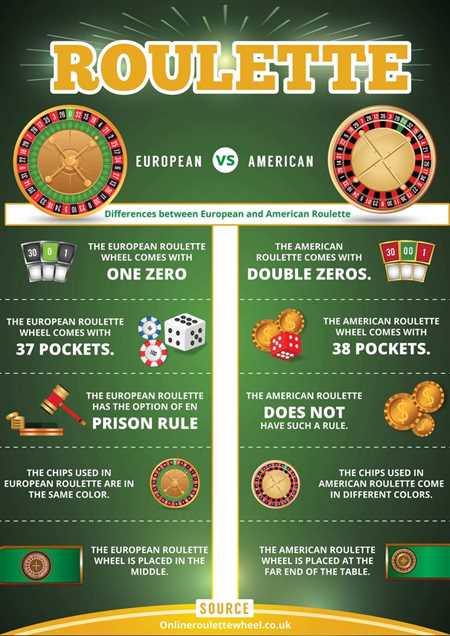

In the realm of chance-based games, certain rules shape the experience and strategies employed by individuals. Within this fascinating world, specific features can impact how wagers are placed and outcomes determined. One prominent aspect revolves around the treatment of particular numbers on the betting landscape, fundamentally influencing both gameplay and potential returns.
Delving into this topic unveils intriguing nuances that set apart various gambling formats. A noteworthy element involves a specific number that often serves as a symbol for winning and losing, yet draws a line when it comes to betting options. This unique characteristic not only shapes the game’s dynamics but also raises questions about fairness and players’ opportunities.
Exploring these rules sheds light on the broader implications of gaming experiences and player behavior. As enthusiasts navigate the complexities of chance and strategy, understanding the intricacies of betting options becomes crucial. Ultimately, this knowledge enriches the overall engagement and enjoyment of the experience.
This section delves into a crucial element that influences gameplay in a popular casino table game. Grasping the significance of this solitary number is vital for comprehending how the game’s mechanics operate and the overall house edge.
In this format, the single digit stands apart from the other numbers, setting the stage for specific rules and potential outcomes.
Exploring these aspects will illuminate the strategic considerations that players must account for during their experience at the table.
Understanding this specific number is essential for anyone looking to enhance their knowledge and strategy in this engaging game.
A special feature within a popular casino game introduces an intriguing element of chance and strategy. This distinctive segment not only enhances the excitement but also influences gameplay dynamics significantly. Understanding its function is essential for grasping the nuances of the overall gaming experience.
In this context, players encounter a unique opportunity that diverges from traditional betting practices. This segment typically acts as a game-changer, affecting odds and outcomes, which often leads to varied approaches in strategies. When evaluating potential gains and risks, one must consider the implications that this element brings to the table.
Strategies designed around this component can alter overall performance, as knowledge about its presence alters decision-making processes. The inclusion of this segment ensures that each round carries a sense of unpredictability, further enriching the entertainment factor. It challenges participants to adapt and rethink their approaches, making every session a distinctive adventure.
Moreover, understanding its impact on overall probabilities can lead to more informed choices. Even with the incorporation of this feature, many enthusiasts appreciate its role as a foundation for thrilling gameplay. Its mere presence will likely continue to captivate both new and seasoned gamblers alike.
Understanding the impact of house advantage is crucial for players aiming to enhance their gaming experience. This factor plays a significant role in overall expected returns, influencing strategic decisions and long-term outcomes. A comprehensive grasp of this element fosters informed choices and better gameplay strategies.
In traditional setups, casinos typically secure a percentage of the total wagers, ensuring profitability over time. The implications of this advantage can be articulated through various components:
Ultimately, acknowledging these implications equips individuals with insightful perspectives, enabling them to navigate the gaming landscape more effectively. Recognizing the nature of house edge promotes responsible gambling while allowing for more strategic participation in various gaming experiences.
This section explores how the unique structure of this game influences wagering approaches and player decisions. Understanding these nuances can lead to more informed choices and potentially better outcomes during gameplay.
These elements shape how individuals approach their gaming experience, often leading to innovative strategies that respond to the altered landscape of available options.
When examining two prevalent variants of a classic casino game, notable characteristics emerge that set them apart. Each version offers distinct setups, rules, and gameplay experiences, attracting different preferences among enthusiasts. Understanding these contrasts can enhance one’s approach and strategy in the gaming environment.
One primary aspect involves the arrangement of numbers on the wheel. In one variant, players encounter a wheel featuring a specific number of pockets, while the other incorporates an additional slot that influences odds and bankroll management. This seemingly simple distinction can have significant implications for gameplay and overall house advantage, shaping the experience for participants.
Moreover, the rules surrounding betting options present another area of divergence. Certain bets may carry different odds, further affecting potential payouts and strategies. As players familiarize themselves with each type, they gain insights into which variant aligns better with their style and objectives.
Ultimately, both variations provide unique thrills and challenges, making them popular choices in casinos worldwide. Exploring these features allows players to make informed decisions, enhancing their enjoyment and potential success at the table.
Understanding distinctions concerning the unique segments of a gambling wheel adds depth to the game and enhances player insight. These variations can greatly influence outcomes, strategies, and overall gaming experience. A closer examination reveals that certain pockets hold special significance within diverse formats of the game.
When analyzing various roulette setups, one can observe that the singular slot representing a specific number plays a crucial role in determining betting dynamics. The mechanics surrounding payouts and risk exposure shift based on the presence or absence of this distinctive segment. Each arrangement brings its own nuances, fundamentally altering the way enthusiasts approach their wagers.
In contrasting formats, the absence or presence of unique slots becomes an essential factor. This influences not only strategic decisions but also overall probabilities associated with each potential outcome. Players can leverage these insights for more informed choices, ultimately affecting their enjoyment and success in the game.
Understanding odds and probability is essential for grasping how games of chance function. Each outcome on the game board holds a specific likelihood, influencing the strategies players might employ. Recognizing these numerical relationships aids in making informed decisions during gameplay.
In games of chance, players often encounter varying odds associated with different outcomes. This variance can significantly affect potential winnings. Factors to consider include:
A common feature in many table games is an arrangement where some sections provide higher payouts than others. This structure creates a balance between risk and reward, enticing participants toward specific areas while maintaining an inherent house advantage.
To illustrate, in traditional layouts, odds are determined by the ratio of favorable outcomes to unfavorable ones. For instance, when a player places a wager on a color, the likelihood of winning is slightly less than 50%, accounting for the presence of additional factors on the board.
Overall, a comprehensive grasp of these statistical elements not only enriches the gaming experience but also enhances strategic approach, enabling participants to engage with heightened awareness and confidence.